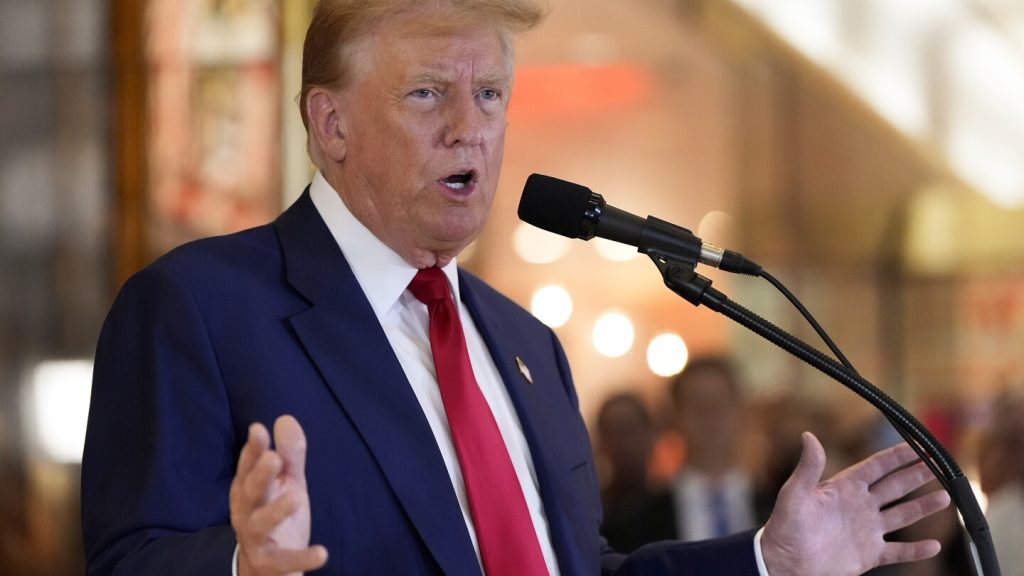Former President Donald Trump completed his mandatory presentencing interview in less than 30 minutes on Monday, answering routine questions. The interview was conducted privately via video conferencing by a New York City probation officer for a report required by law to help determine Trump’s punishment in his hush money criminal case. The report will remain confidential unless the judge authorizes its release. Trump’s lawyers and prosecutors will receive copies closer to his sentencing date on July 11, and both sides can submit additional paperwork to support their views on the appropriate punishment.
Judge Juan M. Merchan has the discretion to impose various punishments following Trump’s conviction for falsifying business records in May. These punishments range from probation and fines to up to four years in prison. Despite declining to testify at the trial, Trump was required by law to participate in the presentencing interview, which he did from his residence at Mar-a-Lago club in Florida, with his lawyer present. The decision to allow his lawyer to attend the interview sparked complaints of special treatment, but city officials maintained that such accommodations are available to anyone subject to a presentencing interview.
Public defenders in New York criticized what they viewed as special arrangements for Trump and called for equal treatment in the pre-sentencing process. They argued that all individuals convicted of crimes should be allowed to have counsel present during their probation interviews, not just wealthy individuals like Trump. The city’s spokesperson defended the arrangements, stating that the option for virtual presentencing interviews has been available since before the pandemic and that any defendant can request their lawyer’s presence as long as the judge approves.
Presentencing reports are essential in assisting trial judges in determining appropriate sentences for convicted individuals. These reports typically include personal history and criminal records, as well as a sentencing recommendation. The interviews also give defendants an opportunity to explain why they believe they deserve a lighter punishment and provide documentation to support their case. Trump was convicted of falsifying business records related to a hush money payment to Stormy Daniels before the 2016 election, a charge he denies. He is expected to appeal his conviction after he is sentenced, as he maintains his innocence and believes the case was politically motivated against him.
Despite the lingering legal challenges, Trump, the presumptive Republican presidential nominee, has vowed to appeal his conviction in the hush money case. He maintains his innocence and asserts that the charges were brought against him to hinder his chances of reclaiming the White House. Trump’s legal team will have the opportunity to present their arguments for a lighter punishment before his sentencing in July, as the judge weighs various factors in determining an appropriate penalty for the former president’s criminal activities. Trump’s participation in the presentencing interview, although controversial due to the perception of special treatment, followed legal requirements and standard procedures in New York criminal cases.


